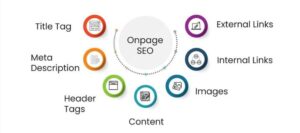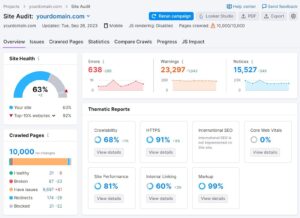Introduction: In today’s digital landscape, Search Engine Optimization (SEO) is crucial for enhancing your website’s visibility and attracting organic traffic. This comprehensive guide covers the best practices and tips to optimize your website for SEO, ensuring you stay ahead of the competition.
Table of Contents:
- Understanding SEO
- Keyword Research
- On-Page SEO
- Technical SEO
- Off-Page SEO
- Content Optimization
- Regular Audits and Updates
- Understanding SEO SEO involves optimizing your website to rank higher on search engine results pages (SERPs). It encompasses various strategies, including keyword research, on-page optimization, technical SEO, and off-page SEO.
- Keyword Research Keywords are the foundation of SEO. Conduct thorough keyword research using tools like Google Keyword Planner, Ahrefs, and SEMrush to identify high-traffic, relevant keywords for your content.

- On-Page SEO On-page SEO involves optimizing individual web pages to rank higher. Key elements include:
- Title Tags and Meta Descriptions: Craft compelling, keyword-rich titles and meta descriptions.
- Headers (H1, H2, H3): Use headers to structure your content and include keywords.
- Internal Linking: Link to other relevant pages on your site to improve navigation and SEO. For example, check out our services page.
- Image Optimization: Use descriptive file names and alt text for images.

- Technical SEO Technical SEO focuses on improving your website’s backend structure. Key aspects include:
- Site Speed: Ensure fast loading times using tools like Google PageSpeed Insights.
- Mobile-Friendliness: Optimize your site for mobile devices.
- XML Sitemaps: Submit a sitemap to search engines to help them crawl your site.
- HTTPS: Secure your site with an SSL certificate.

- Off-Page SEO Off-page SEO involves activities outside your website to improve its authority and ranking. Key strategies include:
- Backlinks: Earn high-quality backlinks from reputable sites.
- Social Media: Promote your content on social media platforms.
- Guest Blogging: Write guest posts for other sites to build backlinks and authority. For more on our approach to off-page SEO, see our blog.

- Content Optimization High-quality content is vital for SEO. Focus on creating informative, engaging, and keyword-rich content. Use a mix of text, images, and videos to keep your audience engaged.

- Regular Audits and Updates SEO is an ongoing process. Regularly audit your site using tools like Google Analytics and Search Console. Update your content to keep it relevant and optimize for new SEO trends.

Conclusion: By following these best practices and tips, you can significantly improve your website’s SEO, attract more organic traffic, and achieve higher rankings on SERPs. Regularly updating your strategies based on performance data is key to long-term success.






